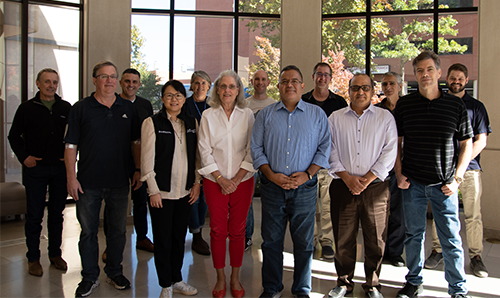

Front row: Ben Fowler, Shaoning Jiang, Linda Thompson, Julio Morales, Gaurav Varshney, Jonathan Wren
Expanding Excellence in Developmental Biology in Oklahoma
Welcome to our website. We have completed Phase I and are currently in the final year of Phase II of our COBRE: “Expanding Excellence in Developmental Biology in Oklahoma”. Developmental Biology is fundamental to progress in determining the molecular basis of many diseases, as well as for the rapidly emerging field of regenerative medicine. Discoveries made in the field of Developmental Biology will enable new therapeutic strategies for a myriad of human diseases. The goal of our COBRE has been to recruit and train promising Project Leaders to build a critical mass of Developmental Biologist in Oklahoma. We succeeded in building an interactive community where developmental biologists can flourish and have established core facilities to provide critical tools for making fundamental discoveries that can be translated into technologies benefiting human health.
In Phase I we recruited five scientists using a variety of model systems to zebrafish, Drosophila, mice and adult stem cells. All five of our Phase I Junior Investigators now run well-funded research laboratories at the Oklahoma Medical Research Foundation (OMRF) or the University of Oklahoma Health Sciences Center (OUHSC).
In Phase II we recruited five new Junior Investigators, four of these have graduated. We recruited two additional scientists and currently support three Phase II Project Leaders. Our Phase II Project Leaders have done outstanding work addressing fundamental questions in developmental biology (cell growth and division, cell signaling, differentiation, tissue regeneration, and modeling human diseases in model organisms) with translational relevance, using a variety of model systems (planarians, Drosophila, C. elegans, zebrafish, mice and cell culture systems). This infusion of new experimental strategies and zeal has greatly benefited our institution overall.
In addition to building our infrastructure, Phase II COBRE support is addressing important and alarming nation-wide trends in the biomedical research workforce: the increasing age of investigators receiving initial NIH support (current average of 42 years), a high dropout rate for those awardees (up to 50%) and difficulty in remaining competitive over time. Erosion of NIH support for investigator-initiated proposals in favor of program awards and expansions in the requirements for publications in scientific journals require more rapid affiliation with large teams. However, that can conflict with the need to achieve independent recognition. Retaining rising stars in an increasingly competitive environment represents an additional challenge for institutions. Our strong track record of successful research and high investigator retention indicate that OMRF can bring unique resources to address these challenges while growing an exciting, multi-disciplinary research focus in Developmental Biology. In Phase II, this has been accomplished through the following Specific Aims:
Aim 1. To grow our multi-disciplinary research program in Developmental Biology through the nurturing of a talented group of Junior Investigators with outstanding potential to become leaders in their fields.
Aim 2. To mentor the Junior Investigators, using a combination of senior scientists and recently graduated COBRE Junior Investigators within existing OMRF and University of Oklahoma faculty.
Aim 3. To form an External Advisory Committee of internationally recognized developmental biologists to evaluate the progress of, and offer advice to, the Junior Investigators.
Aim 4. To maintain and expand Core facilities to support the research of the Junior Investigators and lay the groundwork for sustainable operation after COBRE funding ends.
Aim 5. To promote scientific interactions among the Junior Investigators and create an environment conducive to investigator retention.








